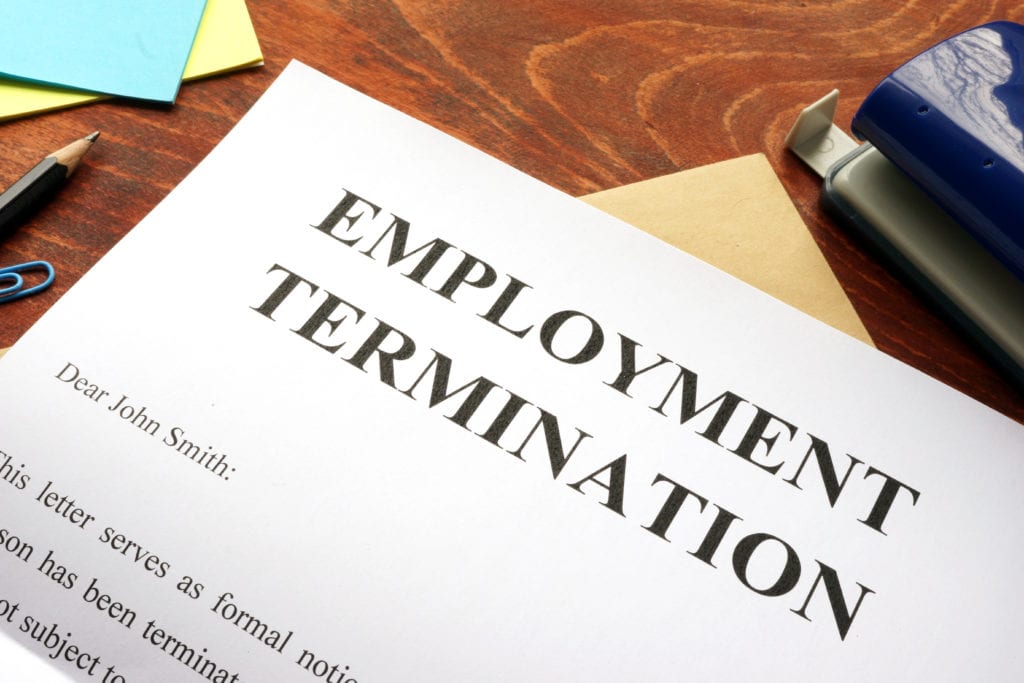Brian J Graber LLC is an Indiana wrongful termination lawyer representing Indiana employees terminated in violation of Indiana and federal law. Indiana common law protects employees fired in retaliation for refusing to commit an illegal act for which he or she would be personally liable. Generally, in Indiana, an employer may discharge an at-will employee for any cause or no cause without incurring liability. Walt’s Drive-A-Way Service v. Powell, 638 N.E. 2d 857, 858 (Ind, Ct. App. 1994). This is known as the doctrine of employment-at-will. However, the doctrine of employment-at-will is not absolute. A major exception to the employment-at-will doctrine in Indiana is that an employer cannot fire an employee for a reason that violates public policy. In addition to Indiana common law protections, federal law provides Indiana employees with protections from wrongful termination.
In McClanahan v. Remington Freight Lines, 517 N.E. 2d 390, 393 (Ind. 1988) the court recognized a cause of action exists for Indiana employees alleging they were wrongfully discharged for refusing to commit an illegal act for which he or she would have been personally liable. In Indiana, an at-will employee fired for refusing to commit an unlawful act for which he or she would be personally liable has a cause of action for wrongful discharge. See Haas Carriage, Inc. v. Berna, 651 N.E. 2d 284, 288 (Ind. Ct. App. 1995).
In McClanahan, 517 N.E. 2d at 391, a truck driver employed in Indiana refused to drive an overweight truck in violation of Illinois law which imposed fines on the driver of an overweight truck. The employer ordered the truck driver to return to its Indiana headquarters and immediately terminated him upon his return. Id.
The Indiana Supreme Court in McClanahan in recognizing this exception to the employment-at-will doctrine reasoned as follows:
No Indiana statute explicitly states that public policy is violated by committing an illegal act or requiring an employee to do so at the risk of his job. Nonetheless, the idea that individuals contravene public policy when they violate the law is so basis to our social and political order that a legislative pronouncement of that concept is hardly necessary. . . . Depriving McClanahan of any legal recourse under these circumstances would encourage criminal conduct by both the employee and the employer. Employees faced with the choice of losing their jobs or committing an illegal act for which they might not be caught would feel pressure to break the law simply out of financial necessity. Employers, knowing the employees’ susceptibility to such threats and the absence of civil retribution, would be prompted to present such an ultimatum. The law will not countenance such a situation.
McClanahan v. Remington Freight Lines, 517 N.E. 2d 390, 393 (Ind. 1988).

Therefore, in Indiana, an employee terminated in retaliation for refusing to commit an illegal act for which he or she would be personally liable has an Indiana common law tort claim for retaliatory discharge. Employees fired in retaliation for filing a worker’s compensation claim have an Indiana common law tort claim for retaliation discharge.
A retaliatory discharge claim for refusing to commit an illegal act for which an employee would be personally liable is a potentially broad exception to the doctrine of employment-at-will. Any state or federal law imposing liability on an employee committing any act required by his or her job duties may give rise to a retaliatory discharge claim such as the following:
- Refusing to drive an overweight truck in violation of state law;
- Refusing to operate a vehicle with a load that is not safely secured in violation of Indiana law;
- Refusing to violate federal safety regulations that impose criminal penalties;
- Refusing to engage in a scheme to defraud the State of Indiana.
Therefore, an employee’s refusal to engage in any activity that would violate Indiana or federal law that imposes a penalty on the employee may support a claim for retaliatory discharge.
Retaliatory Discharge Damages
Retaliatory discharge of an employee at will gives rise to a cause of action in tort, rather than breach of contract. See Haas Carriage, Inc. v. Berna, 651 N.E. 2d 284, 289 (Ind. Ct. App. 1995). Retaliatory discharge of an at-will employee constitutes an intentional wrongful act on the part of the employer for which the employee is entitled to be fully compensated in damages. See Haas Carriage, Inc., 651 N.E. 2d at 289.
Indiana’s retaliatory discharge law is evolving. Click here to learn about Indiana wage & hour retaliation protections. If you believe you were wrongfully terminated for refusing to commit an unlawful act for which you would be personally liable, contact Brian J Graber LLC, an Indiana wrongful discharge lawyer, for a free confidential consultation at (219) 232-9011 or by email.
Federal Wrongful Termination Claims
Indiana employees are protected from wrongful termination under several federal laws. To learn more about your right to be free from wrongful termination under federal law, click here. These federal wrongful termination claims provide broader protection than Indiana law and include retaliation short of actual termination. However, several of these federal wrongful termination claims have a statute of limitations that can be as short as 30 days. Brian J Graber LLC is an Indiana wrongful termination lawyer representing Indiana employees who have been retaliated against in violation of the following federal laws:
- Truck Driver Whistleblower Law
- Railroad Whistleblower Law
- Food Safety Whistleblower Law
- Seaman’s Protection Act
- Aviation Whistleblower Law AIR21
- Pipeline Whistleblower Law
- False Claims Act-Whistleblower Protections
- Federal Wage & Hour Retaliation Protections
- FMLA Interference and Retaliation Protections
- Public Employee Federal Civil Rights Protections
- USERRA Anti-discrimination and Retaliation Protections
- Federal Sexual Harassment Protections
- Federal Employment Discrimination and Retaliation Protections
- Federal Environmental Whistleblower Protections
- Federal Nuclear Whistleblower Protections
- Indiana employment discrimination law prohibiting Indiana employers from requiring the implantation of devices
- Federal Pregnancy Discrimination and Retaliation Laws
Contact Brian J Graber LLC, an Indiana wrongful termination lawyer, as soon as possible if you believe you may have been fired or retaliated in violation of any of these federal whistleblower protection laws at (219) 232-9011 or by email for a free confidential consultation. The statute of limitations is very short. Act now to protect your rights.
